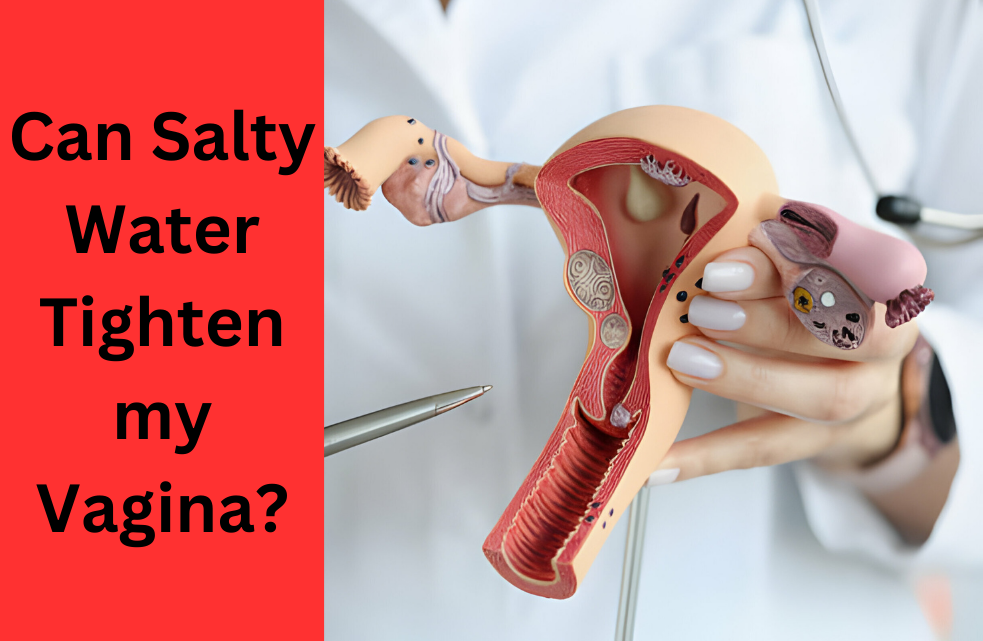Advertisements
One fine day, I was at the airport lounge waiting for my flight, sitting next to me were two beautiful ladies also waiting for their flight.
Their laughter caught my attention, then I overheard one (let’s say, Emily) asking the other (let’s say, Joan)
Emily: Babe, can I ask you something?
Joan: Yes, sure anything; What’s on your mind?
Advertisements
Emily: Do you use salty water to tighten your virgina?
Joan blinked in surprise at the unexpected question
Joan: Um, I once used hot water in combination with salty water to tighten my Vigina. What about you?”
Emily: I did that too, but sometimes I feel like I’m doing something wrong. Like, I always worry because it’s not scientifically proven.
I almost said yes, you got that right, but I kept my cool
Women often feel pressured to believe that having a tight vagina is what makes them to be sexually desirable, many have lost their sexual confidence because of vaginal laxity. As a result of this, many women are going about seeking natural ways to tighten their vaginas, and one common way is using salt water and sometimes in combination with hot water.
Some even go as far as adding garlic or cloves to hot water for vagina tightening.
Saltwater, also called saline solution, is made by mixing salt with water. It’s commonly used for cleaning wounds. But does using salty water tighten the virgina?
There is no scientific evidence to support the claim that salt water tightens your vagina. While some believe that salt causes the vaginal walls to tighten up, there is no study to support this. It is important to bear in mind that, while salty water may give you a temporary tightening sensation, it is not a long-term solution for vaginal tightness. Exposure to high levels of salt can disturb the vagina’s normal pH balance, causing irritation or infection.
Alternative Methods for Vaginal Tightening
Pelvic Floor Exercises
Pelvic floor exercises, often known as Kegel exercises, are a natural approach to tightening the vagina. These exercises target the muscles in your pelvic floor, which can help improve the strength and tone of your vaginal muscles.
To do Kegel exercises, squeeze and then relax the muscles used to stop urinating. These workouts can be done at any time and from any location.

Orgasms
During orgasms, there is increasing blood flow, and the muscles in your vagina and uterus contract uncontrollably because of the release of oxytocin. This can lead to tightening of the vagina. This natural process strengthens pelvic muscles over time, resulting in improved tone of these tissues.
Clinical Treatments
If you want more significant results, there are clinical treatments to consider. These treatments range from non-surgical methods like radiofrequency and laser therapy to surgical procedures like vaginoplasty. However, it is critical to recognize that these treatments have risks and potential adverse effects. Therefore, before undergoing any of these operations, you should consult with a medical practitioner.
Do certain foods make BV worse?
How do I Know If Klovinal (vaginal pessary) Is Working
Best Food to Eat Before Sex
Frequently Asked Questions
Is salt water good for Virgina?
No, salt water is not good for the vagina. In fact, applying salt directly to the vagina removes healthy bacteria from the area, increasing the risk of developing an infection. Instead, it is recommended to seek medical advice and treatment from a healthcare professional.
What tightens the Virgina?
Kegel exercises are an effective way to tighten the vagina; This exercise involves contracting and relaxing specific muscles around your pelvis repeatedly over time.
What are the signs of a healthy Vagina?
A healthy vagina is one that is clean, moist, and maintains a normal pH balance. Here are some signs of a healthy vagina:
- Cleanliness: A healthy vagina should be clean and free of any unusual odors or discharge. Regular bathing and wearing clean, breathable underwear can help keep the vagina clean.
- Moisture: The vagina naturally produces a small amount of clear or white discharge to keep it moist. However, excessive dryness or wetness could indicate a problem.
- pH balance: The normal pH of the vagina ranges between 3.8 and 4.5, making it slightly acidic. It’s important to maintain this balance to prevent infections and other vaginal issues.
If you notice any unusual symptoms like itching, burning, or unusual discharge, it’s important to see a healthcare provider for evaluation.
How to Tell If Your Vagina is Infected
- Abnormal discharge: While vaginal discharge is normal, if it appears with an unusual color, consistency, or smell, it might indicate an infection.
- Itching and irritation: Feeling itching, burning, or general discomfort in your genital area could signal an infection.
- Pain during sex: Experiencing pain during intercourse might be a sign of an infection, particularly if accompanied by other symptoms like discharge and itching.
- Painful urination: Pain or burning sensations while urinating could indicate a urinary tract infection (UTI), which can also affect the vagina.
